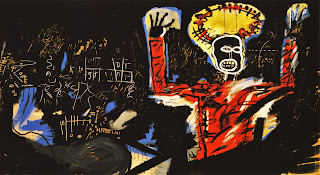the most underrated Frank Ocean song?
With its array of characters that pray, love, or cry, Frank Ocean's channel ORANGE is my favorite album because it is endlessly relatable. I grew up on the album—playing it in the car on trips to H mart or hearing the sounds waft over from the basement where my mom worked. But almost ten years later, I am still realizing the subtle references, double entendres or hidden meanings of songs that ask just as many questions as they answer—and the airy, mid-album contemplation of "Crack Rock" might be the most indicative of this constant questioning.
In the 1980s, the CIA covertly supported right-wing rebel groups called the "contras" to undermine the socialist Sandinista government of Nicaragua. But this intervention abroad came at the cost of African-American lives. An investigation by journalist Gary Webb found that the CIA financed the contras through sales of cocaine to the Crips and Bloods street gangs of L.A., establishing a pipeline that caused an epidemic of the recently developed cheap and potent form of cocaine known as "crack." This connection had a serious implication: the U.S. government was causing the problem that it claimed to be solving through its draconian, discriminatory practices in the War on Drugs. Drug dealers were portrayed as monsters that destroyed neighborhoods and Black people that turned to drugs were harshly sentenced, stereotyped as being addicted and violent—but the root of the influx came from the government itself.
"Crack Rock" exposes this sort of systemic violence, effortlessly connecting the lost, addicted soul to the context of structural inhumanity that has caused their destructive addiction. "You hit them stones, and you broke your home," Frank croons, using second-person to force the listener to grapple with the perspective of his characters. While these lines initially convey the guilt of the individual, the urgency of "Crack Rock" increases as it zooms out and the tempo becomes more erratic towards the end. "Crooked cop, dead cop/How much dope can you push to me? Crooked cop, dead cop/No good for community," he sings, expressing the complicity of societal structures in oppressing marginalized neighborhoods—in this case, the police who allowed the drug trade to continue as long as they got a share of profits.
The song comes to a sobering yet powerful conclusion: that society is itself the addict, complicit in perpetuating discrimination against consistently underserved communities while covering it up with the easy narrative of victim-blaming. "Don't no one disrupt nirvana, don't no one wanna blow the high." Set over a pulsing cloud of organic instrumentals, "Crack Rock" gets at the core of channel ORANGE: it expresses peaceful cycles of American life from an angle so all-knowing that the listener is forced to reckon with the disturbing truths underneath them.


Comments
Post a Comment